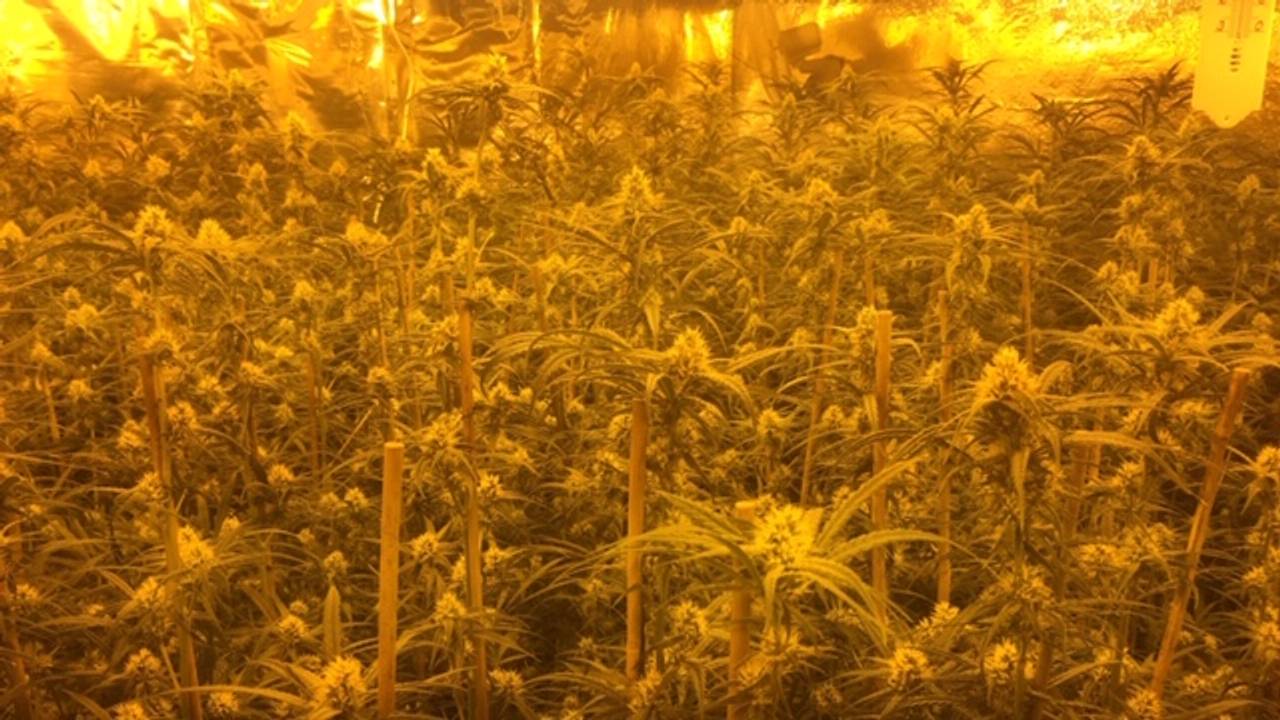It is already a historic moment. Breda and Tilburg will have the national scoop of the cannabis test on Friday. Or at least the run-up to that test. Coffee shops in both cities can start selling legally grown Dutch weed. The intention is to eliminate the shadyness and crime surrounding coffee shops. The illegal cannabis industry itself, that’s a completely different story.
“Is about the Dutch Cannabis Sativa or nederwiedewiedewiet.” That is what Doe Maar sang in 1982. It has been known for a long time that you can do fun things with the dried flower buds, leaves and resin of the cannabis plant. According to experts, it is the most commonly used drug in the world.
Banned in the Netherlands since the first Opium Act in 1928, but popular for its relaxing effects. Certainly from the sixties, in combination with love and peace. The first shops selling smuggled cannabis appeared around 1970.
Toleration policy
In 1976 something special happened. In the updated Opium Act, cannabis was now seen as a soft drug. Loosely translated: great stuff, not that big of a problem. The tolerance policy was born, unique in the world. It paved the way for satisfied smokers. You could just get it in the bars, on the street and later in the coffee shop.
In 1981, the first Brabant shop opened in Tilburg by cannabis pioneer Johan van Laarhoven. Perhaps the Tilburg Doe Maar bassist Henny Vrienten got his inspiration for his song ‘Nederwiet’ there. That became a hit, a year after the opening. Just like the weed.
Through the front door
More and more shops opened their doors. Tourists visited them with amazement. Nothing sneaky, just through the front door. But there was a bizarre downside. Growing cannabis and selling your harvest remained prohibited. That is why drugs entered the coffee shops secretly, through the back door, as it was soon called. That has never been different and is the weak spot of the system.
Because crime networks are increasingly pushing themselves through that back door. Everything outside the tax authorities and government, with big profits. They could invest in grow lights and fertilizer and multiple harvests. There was such a mountain of weed that we could never smoke it, so more went abroad. An estimated 85 percent is still for export, the police think.
Sprawl
Thousands of illegal nurseries were established in attics and bedrooms, with all the nuisance that entailed. And a proliferation of coffee shops. National rules were introduced in the early 1990s. Even then, there were parties calling for legal cultivation, because otherwise crime would have too much influence, but there was too little political support.
Soft drug trafficking was allowed under strict conditions, such as no advertising, no nuisance, no youth, a maximum of 5 grams per customer and a trading stock of 500 grams. Later the rule came that you could only sell to Dutch people.
Experiment
But that one problem remained: the cultivation and supply of illegally grown cannabis. Energy companies have long seen from the power theft that there are 30,000 cannabis farms every year. Only a few thousand are discovered.
In 2017, politics made a huge turnaround. A majority of the House of Representatives decided on an experiment. To disconnect the coffee shops from the underworld, legal growers will supply weed. These legal growers then produce consistent quality weed. Under supervision, with a clear label, no pesticides or heavy metals and a package leaflet detailing the risks.
‘Too limited’
While the rest of the country was still busy with the preparations, grower Fyta in Waalwijk and the mayors of Breda and Tilburg were eagerly awaiting. They were given the green light to start on December 15. With 42 flavors of weed, so lots of choice. Still in a kind of start-up phase because not all 19 coffee shops in both cities are fully participating right away. They can continue to sell illegal weed for a while.
The national cannabis trial will start in a few months, with more municipalities, all outside Brabant, and more cannabis growers.
Critics warn that the trial is too limited and comes too late. And the question remains whether customers actually want this, that ‘state weed’. Questions also remain about profitability, because legal weed has a higher cost than illegal weed. And then there is the fear that it will not do anything in the underworld, because it mainly focuses on exports.
For the time being, little has changed for weed fans: more than half of Brabant coffee shops continue to sell illegally grown weed. Because the 22 coffee shops in Eindhoven, Den Bosch, Oss, Etten Leur, Helmond, Waalwijk and Uden are not allowed to participate in the trial.
The trial with Dutch weed will last at least four years. No one knows what happens next.
You may also find this interesting:
‘Finally getting rid of that scary back door’, cannabis grower ready for cannabis test
Cannabis cultivation is becoming increasingly out of the picture in Brabant
2023-12-14 20:00:31
#Wiettas #starts #small #scale #sales #purchasing #front #door
